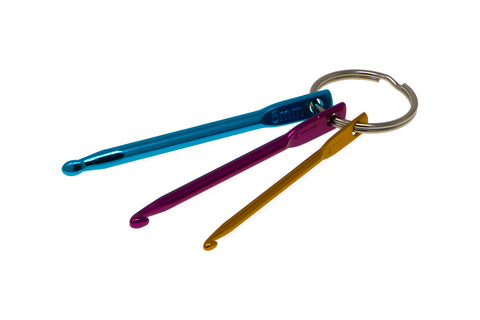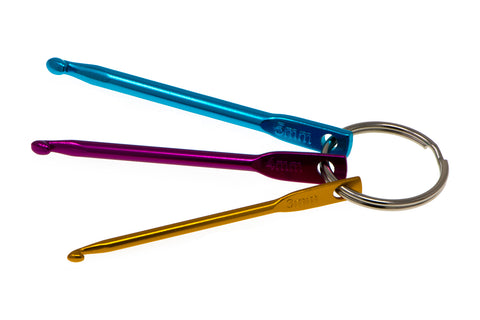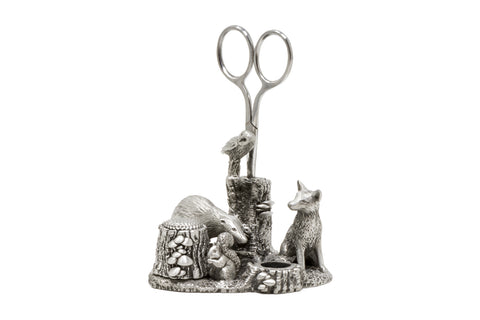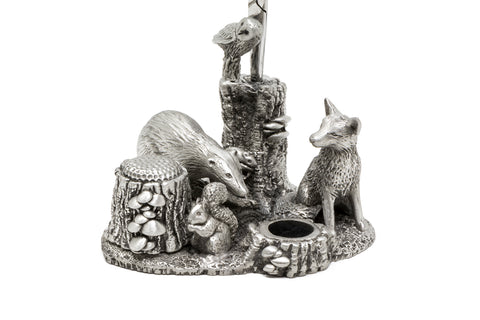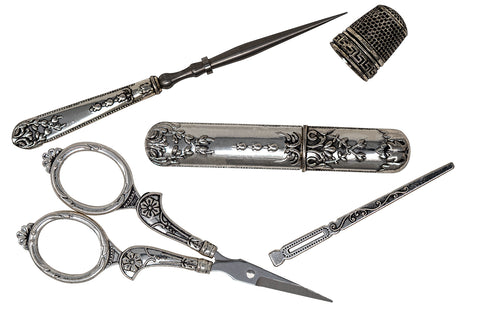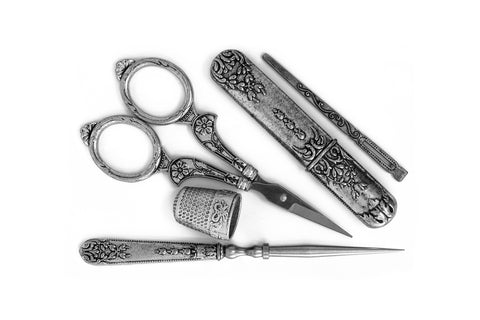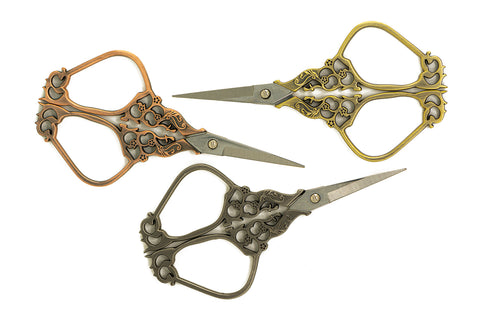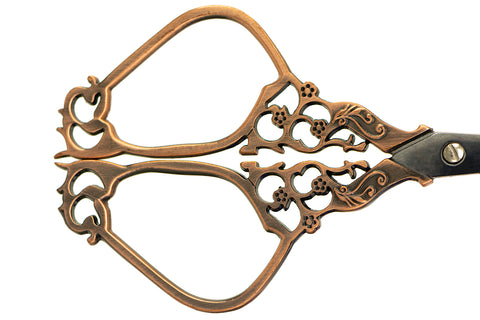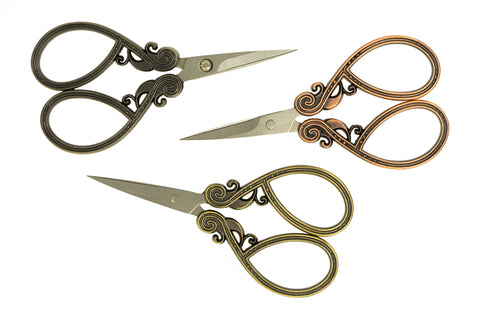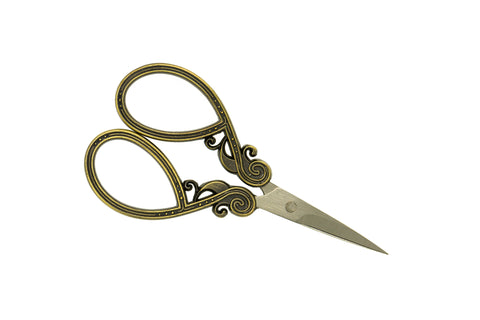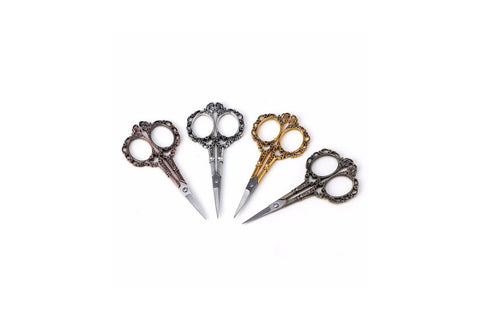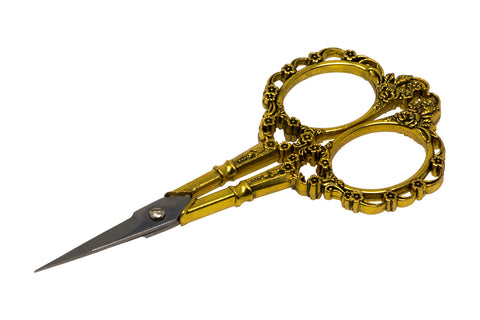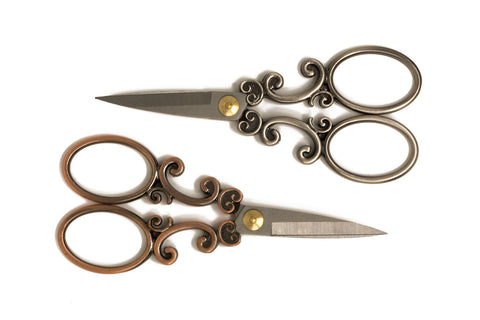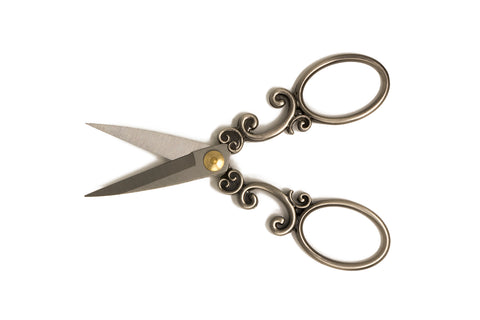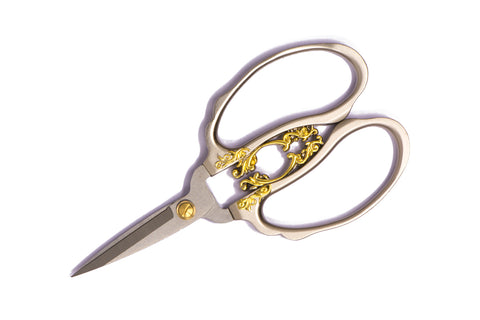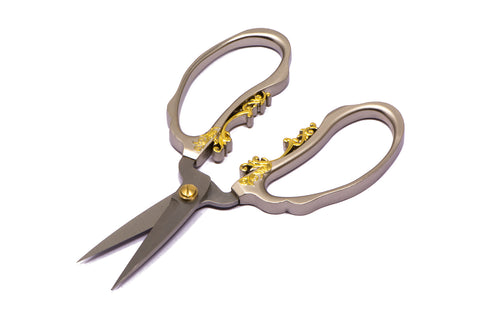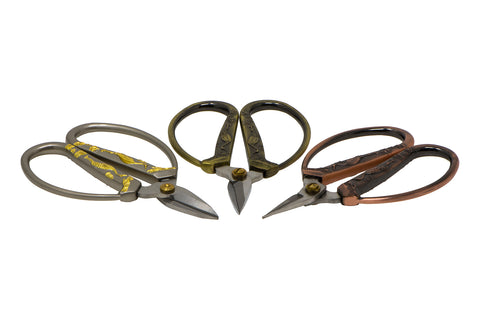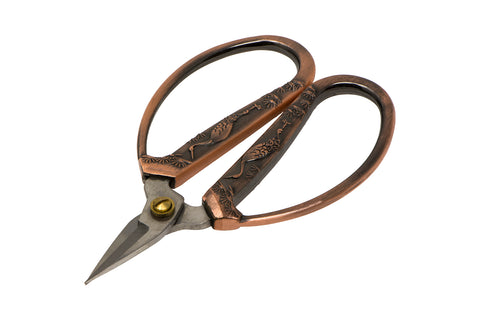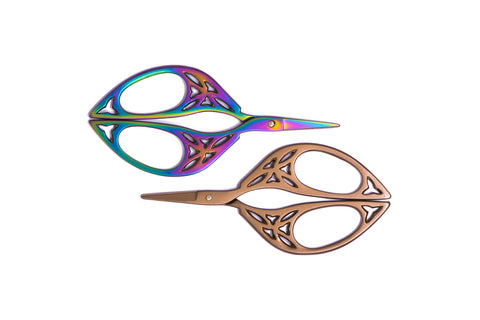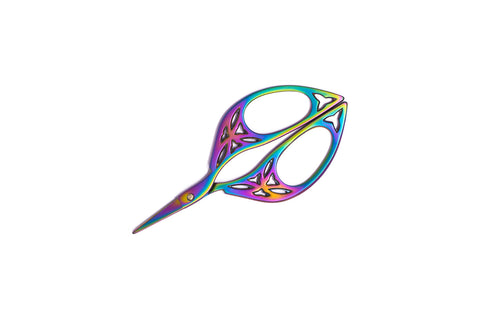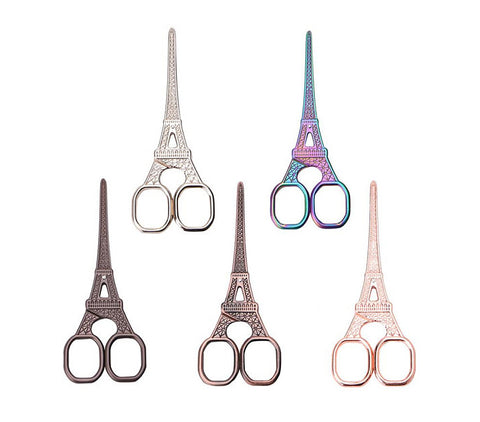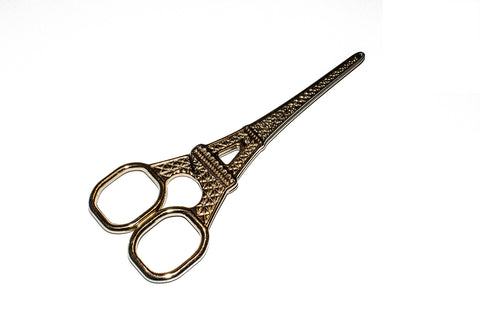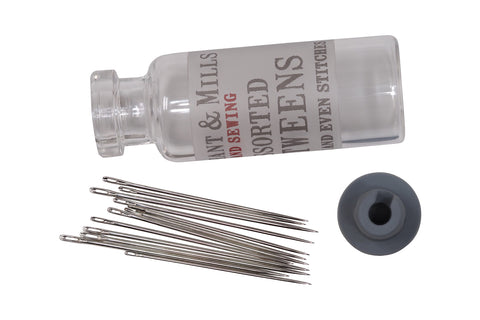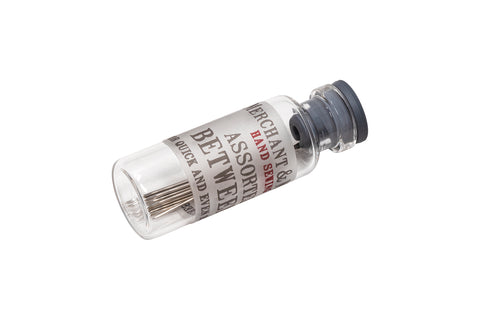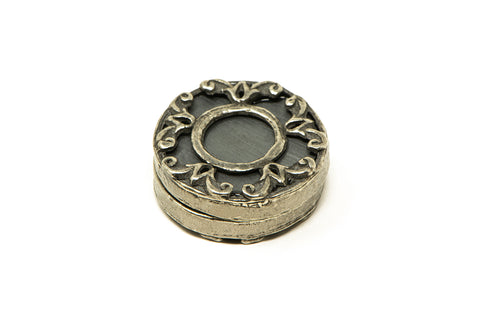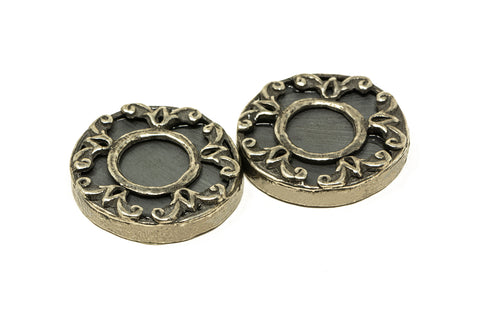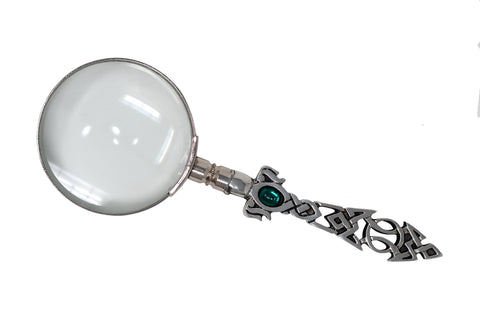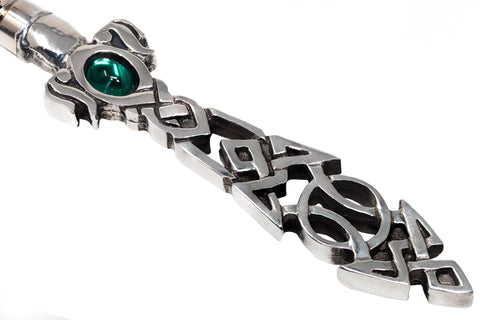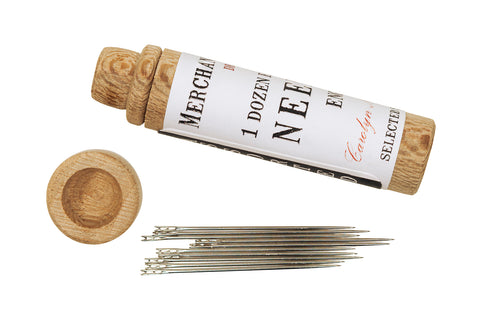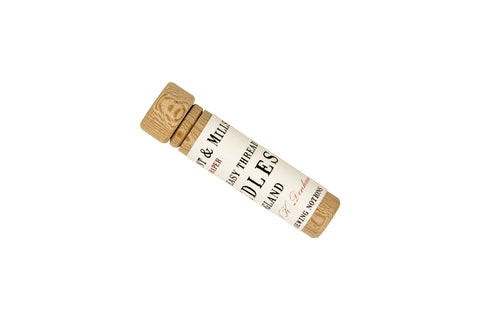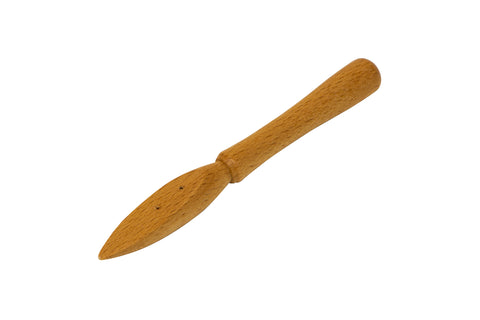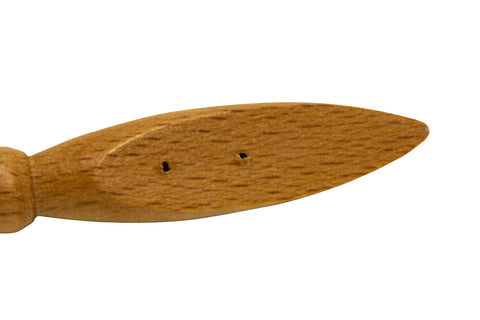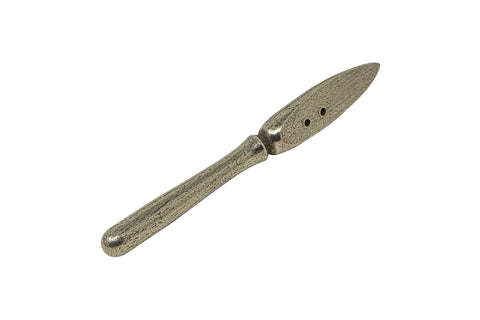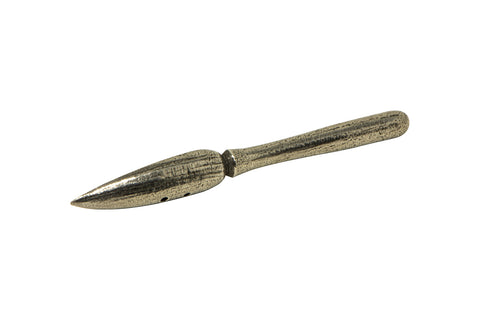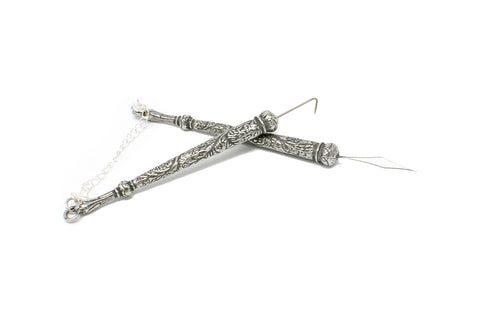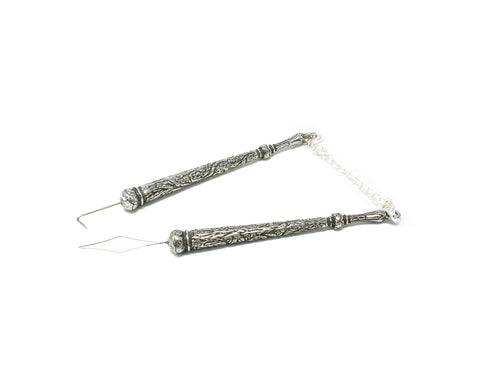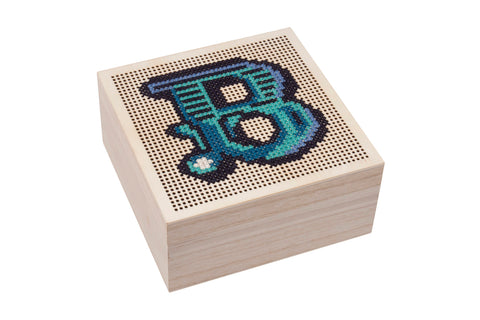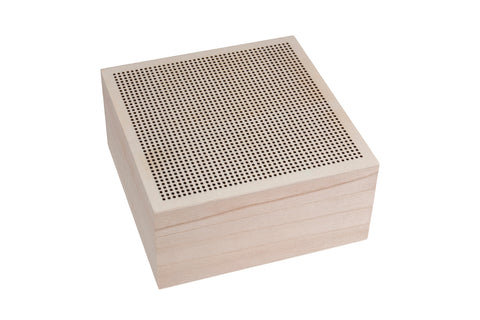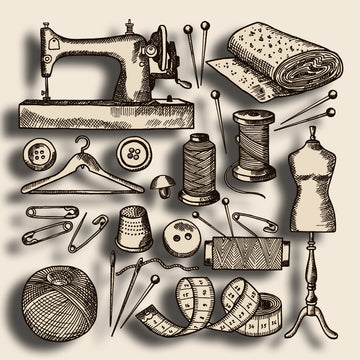Keeping Your Needlework Scissors Sharp

Keeping Your Needlework Scissors Sharp
A good pair of scissors can be the most prized possession in your kit but if you don't maintain them then they can also be the most useless. A dull, poorly maintained pair of scissors can make your work tedious, mar your results and even damage your materials. With a bit of proper care and maintenance you can ensure years of flawless results.
Is is absolutely essential that you only use your scissors for the purpose they were designed for. A quality pair of scissors will cut through thread/fabric with ease. If you feel resistance (i.e. its difficult to cut) then your scissors are either damaged or you're using the wrong pair for the job on hand. If you haven't already, check out our guide on choosing the right pair of embroidery scissors. If you have fabric scissors or thread scissors, never use them to cut anything other than fabric or thread - this includes paper. Doing so can damage your scissors. This is especially true for sticky tape which can leave a harmful residue on the blades. Keep your needlework scissors separate from any other scissors to avoid accidental usage.
Not all parts of the blade are created equally. Sounds weird right? When you're cutting thicker threads/fabric, use the root of the blades (the part closer to the handle). The root is stronger than the tip and provides better cutting. If you use the weaker tip for the more stubborn materials then you not only risk bending them but also blunting the edge and pulling the blades out of alignment.
This may seem a bit counter-intuitive, but do not wash your scissors - at least not with water. Prolonged exposure to water can cause your scissors to rust which can render them useless. The best option is to regularly wipe the blades with a soft cloth and regularly oil the hinge (at least once a month) - any household oil should be suitable for the job. If you live in a particularly humid area, such as near the coast, or you want to put your scissors away into storage then you should coat the blades in a thin coat of oil. For best results when oiling, use a thin brush for application and, upon completion, open and close the scissors a few times to make sure the oil gets evenly distributed in all the right places.
Lastly, it goes without saying, but we're going to anyways - do not drop your scissors. Or at least, try not to. As with many other things, they are susceptible to damage after a fall: the blades could get misaligned, blunted or the hinge mechanism could come loose to name a few potential problems. We recommend keeping your scissors in a sheath or a case to avoid accidental damage like this. Furthermore, unless you know what you're doing, do not disassemble a pair of scissors. Reassembly can be tricky, and if not done right, can result in damaging the scissors.
Follow the above guidelines and your scissors will last you for many years to come. If you're looking for a quality pair of scissors that are easy to maintain then have a look at our range of needlework scissors here.
